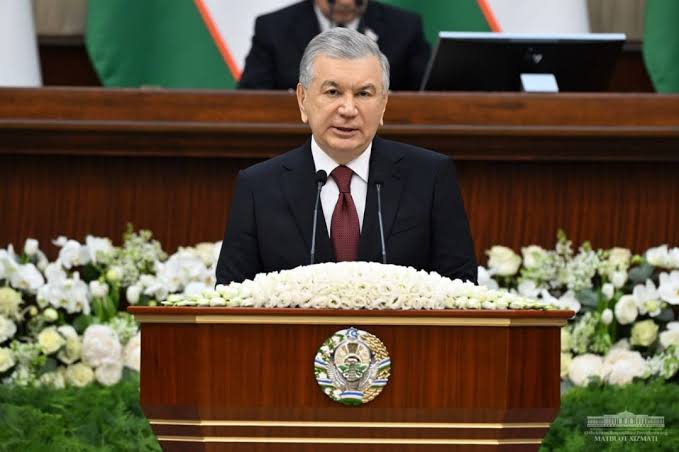
Javohir Safayev
Chief Researcher of Parliamentary Research Institute under the Legislative Chamber of the Oliy Majlis of the Republic of Uzbekistan
Currently, as our state’s development has entered a new stage, large-scale reforms are being implemented to modernize all spheres of public life and build a rule-of-law state. In this process, legislative activity is acquiring special relevance and becoming an important factor in the effectiveness of public administration. The profound socio-economic changes occurring in our country, the activation of integration processes in the international arena, as well as global digitalization trends require cardinal improvement of legislative activity.
Institutional Changes and Attention to the Quality of Laws
The Concept for Improving Rule-Making Activity, adopted in 2018, marked a fundamental turn in this field. This document serves to radically improve the institutional, legal, and organizational foundations of rule-making activity. Analysis shows that while previously subordinate legislation was the main instrument defining the mechanism for implementing laws, today priority is given to the direct effect of laws.
In recent years, several important changes have been implemented in improving the institutional structure of lawmaking. In particular, the Institute of Legislative Problems and Parliamentary Research was established under the Oliy Majlis of the Republic of Uzbekistan, and the scientific support of parliament’s activities was ensured.
Achievements in this area are reflected in international rankings. Over the past 6 years, Uzbekistan has risen by 5 positions in the Rule of Law Index and by 24 positions in the Worldwide Governance Indicators (WGI), which is clear evidence of our success. Behind these indicators are consistent reforms, systemic changes, and efforts aimed at improving the quality of lawmaking.
The introduction of “Smart regulation” principles has led to a qualitatively new stage in legislative activity. Within this model, modern tools such as Regulatory Impact Assessment and Regulatory burden reduction are being applied.
Special attention is paid to harmonizing international experience and national legislative practice in developing regulatory legal acts. In this regard, systematic work is being conducted to study the best practices of foreign countries and implement them in national legislation. For example, the legislative experience of developed countries such as Germany, Japan, and South Korea is being deeply studied and implemented, taking into account national conditions.
In Any Rule-of-Law State, All Relations Are Based on Legal Norms
The year 2023 acquired special historical significance with the adoption of the new Constitution, marking a fundamental turn in our country’s life. The updated Basic Law, harmoniously combining our people’s traditional values, today’s requirements, and tomorrow’s prospects, created the basis for important updates in the field of lawmaking. Article 98 of the Constitution expanded the powers of subjects of legislative initiative, activating their participation in the legislative process. This serves to develop the legislative process based on democratic principles.
The fact that state governance mechanisms are implemented primarily through rule-making, particularly legislative activity, is a proven truth today. Lawmaking is a complex, multi-stage, and multifaceted process, whose effectiveness directly depends on the viability and public orientation of adopted legal norms. After all, every citizen wants to see legal guarantees of their life, well-being, and future in legal norms.
In legislative activity, deep study of society’s needs, consideration of trends in social relations development, and forward-looking forecasting are of great importance. Especially in today’s rapidly changing world, improving the quality and effectiveness of lawmaking and ensuring the stability of laws becomes particularly relevant.
Global innovations, rapid development of digital technologies, and emergence of new social relations require new approaches to legislative activity. In this regard, legislative subjects face the task of not only regulating existing legal relations but also providing legal framework for new social relations that may arise in the future.
The Main Arena of Legislative Activity
As a result of the 2024 elections to the Legislative Chamber of the Oliy Majlis of the Republic of Uzbekistan, a new composition of parliament has been formed. The new corps of deputies faces important tasks in implementing new approaches to lawmaking and adopting people-oriented and effective laws.
As everyone knows, lawmaking is a systematic process requiring a complex of specific methods and tools, including complex actions from determining society’s need for legal norms to the entry into force of relevant regulatory legal acts and monitoring their implementation.
It should be noted that in forming a rule-of-law state and civil society, ensuring optimality, perfection, public orientation, and effectiveness of legislation is of great importance. In a word, the development of society and the state depends on the quality of rule-making activity.
Therefore, parliament’s work is being organized based on new approaches. Over the past period, the lower chamber of parliament has deeply studied and analyzed the experience of more than 20 developed countries with advanced rule-making experience, including the USA, UK, Germany, France, South Korea, and Turkey, as well as achievements of modern science.
It is expected that the new convocation of parliament, taking this experience into account, will carry out extensive work to develop even more effective, people-oriented laws. While in 2022 the number of laws adopted by the Legislative Chamber and sent to the Senate was 88, in 2023 this figure reached 99. In accordance with Article 98 of the new Constitution, subjects of legislative initiative submitted a total of 121 draft laws to the Legislative Chamber in 2023. In 2022, this figure was 120.
Over the past period, deputies’ requirements for the quality and concept of laws have significantly increased, based on the interests of voters, including the party electorate. As a result, several discussed draft laws caused serious discussions and debates, and following voting results, 4 draft laws were rejected and returned to the initiative subject.
Conciliation commissions play a special role in coordinating relations between parliamentary chambers in the field of lawmaking and eliminating disagreements in law adoption. These commissions are becoming an important mechanism for improving laws. In 2023, Conciliation Commissions were established for 2 laws rejected by the Senate, and following their conclusions, the laws were adopted by the Legislative Chamber and sent to the Senate.
The new parliament composition faces priority tasks aimed at further strengthening legal foundations in such important areas as improving people’s welfare, developing entrepreneurship, strengthening social protection of the population, improving people’s daily lives, and reliably protecting citizens’ legal rights and interests.
Current Tasks Before Us
The development of legislative activity in Uzbekistan at the new stage accelerates our country’s integration processes into the global legal community. Integration into international legal structures requires bringing our national legislation in line with international standards and requirements. In this direction, our country’s position in such prestigious international rankings as the “Rule of Law Index” and the “World Justice Project” is constantly improving.
Along with achievements in lawmaking, there are several urgent tasks requiring solution. In particular:
First, further strengthening of parliamentary control over the implementation of legislative acts is necessary. In this regard, the monitoring system should be improved using modern information technologies, and the methodology for evaluating law implementation effectiveness should be developed.
Second, work on systematizing and codifying the legislative base must continue. In this direction, it is necessary to eliminate duplicative and outdated legal norms and optimize the legislative system through the adoption of sectoral codes.
Third, the issue of implementing artificial intelligence technologies in the legislative process. In particular, it is necessary to expand the practice of using modern software products in the processes of preparing draft laws, assessing their impact, and conducting legal expertise.
Fourth, the task of deeply studying international experience and effectively implementing it in national legislation. In this context, harmonizing international legal standards with national legislation and implementing advanced foreign experience, taking into account national characteristics, is of great importance.
Fifth, it is necessary to expand civil society institutions’ participation in the legislative process. Mechanisms for strengthening public control and ensuring active citizen participation in discussing draft laws need to be improved.
Sixth, the issue of enhancing human resource potential in the field of lawmaking. In this direction, it is necessary to study international experience, improve the qualification enhancement system, and strengthen cooperation with foreign experts.
In conclusion, reforms in the field of lawmaking in Uzbekistan continue consistently.
These reforms ultimately serve to strengthen the foundations of the rule of law in our country, reliably protect citizens’ rights and freedoms, and improve society’s welfare. The consistent continuation of reforms in the field of lawmaking creates a foundation for further enhancing Uzbekistan’s authority in the international arena and accelerating integration processes into the global community.


 to all..
to all.. 


